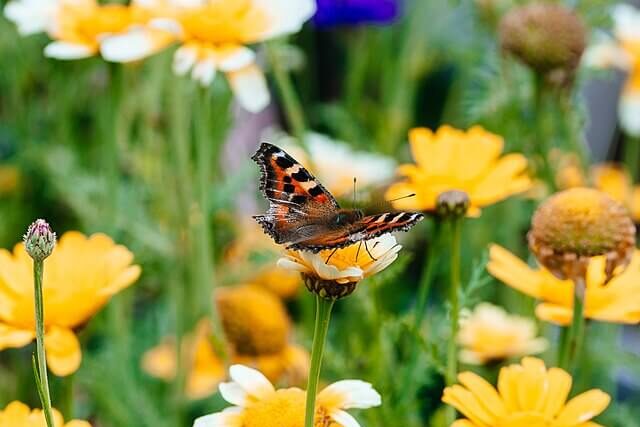
The small tortoiseshell butterfly has experienced its worst year on record in England, and has declined 82% across the UK since 1976.
This alarming trend, noted during the annual scientific count of butterfly populations, has left researchers puzzled, though climate change is believed to be a contributing factor.
It had its worst year on record in England, its second worst in Wales and its joint-fifth worst in Scotland in 2023, but contrastingly did well in Northern Ireland, logging its second-best year.
These findings stem from the UK Butterfly Monitoring Scheme (UKBMS), the world’s most extensive and long-standing scientific butterfly data collection initiative. Managed by Butterfly Conservation, the UK Centre for Ecology and Hydrology (UKCEH), the British Trust for Ornithology, and the Joint Nature Conservation Committee, the UKBMS paints a varied picture of the health of butterfly populations across the UK.
Of the 58 species monitored, half had a year better than average, while the rest fared worse at the sites observed. Some species, such as the large blue and the chequered skipper, showed promising results due to conservation efforts. The large blue, reintroduced in the 1980s after becoming extinct in 1979, had its best year on record, and the chequered skipper, reintroduced in 2018, also had a record year.
However, not all news is positive, as some species are still recovering from the effects of the 2022 drought, notably the green-veined white and the ringlet. These species suffered due to the loss of food plants during the drought, which the caterpillars rely on, resulting in fewer surviving caterpillars and a subsequent decrease in butterfly numbers.
While climate change negatively impacts the small tortoiseshell in southern Britain, some species like the red admiral are benefiting from the warmer temperatures. The red admiral, a migratory species that has begun overwintering in the UK, recorded its best year ever last year and has seen its numbers at monitored sites increase by 318% since 1976.
Dr Marc Botham, a butterfly ecologist at the UKCEH, said: “Butterflies are an indicator species, meaning they can tell us about the health of the wider environment, which makes the UKBMS data invaluable in assessing the health of our countryside and natural world in general. The mixed results this year emphasise the need for continued monitoring and conservation efforts to protect these important species and their habitats.”
Overall, the UKBMS now gathers data from over 3,000 sites annually, providing crucial insights into insect population changes and offering broader indications of the impacts of climate change on various species.
Dr Richard Fox, the head of science at the charity Butterfly Conservation, said: “Butterfly numbers fluctuate naturally from year to year, largely due to the weather, but the long-term trends of UK butterflies are mainly driven by human activity, including habitat damage and destruction, pesticide use, pollution and climate change. By monitoring long-term butterfly trends we can learn about the impact of climate change and other factors on our native wildlife.”
——————————————————————————
At Natural World Fund, we are passionate about stopping the decline in our wildlife.
The decline in our wildlife is shocking and frightening. Without much more support, many of the animals we know and love will continue in their decline towards extinction.
When you help to restore a patch of degraded land through rewilding to forests, meadows, or wetlands, you have a massive impact on the biodiversity at a local level. You give animals a home and food that they otherwise would not have had, and it has a positive snowball effect on the food chain.
We are convinced that this is much better for the UK than growing lots of fast-growing coniferous trees, solely to remove carbon, that don’t actually help our animals to thrive.
This is why we stand for restoring nature in the UK through responsible rewilding. For us, it is the right thing to do. Let’s do what’s right for nature!
Donate today at https://naturalworldfund.com/ and join in the solution!

